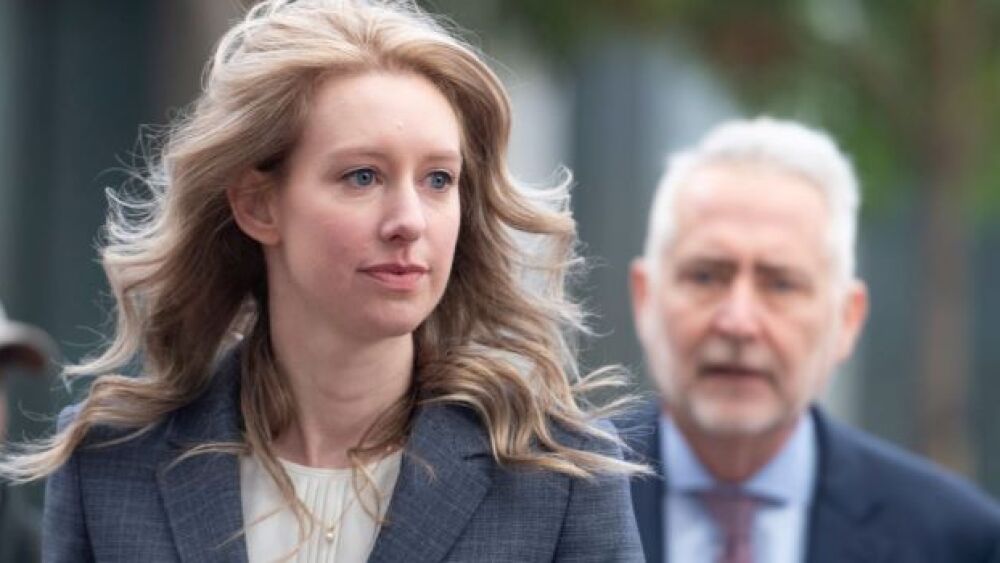The prosecution alleged that sometime in 2018, Holmes destroyed a database called the Laboratory Information System (LIS), which contained three years’ worth of accuracy and failure rates of Theranos tests.
Yichuan Cao/NurPhoto via Getty Images
In the ongoing run-up to her fraud trial, Theranos founder Elizabeth Holmes denies that she destroyed any evidence related to the company’s laboratory tests. It’s the latest pre-trial argument over what evidence a jury will get to hear when the case goes to court.
The prosecution alleged that sometime in 2018, Holmes destroyed a database called the Laboratory Information System (LIS), which contained three years’ worth of accuracy and failure rates of Theranos tests, CNBC reports. Prosecutors have claimed that Holmes had the evidence destroyed because it would prove the company’s blood-testing technology was inaccurate.
This week, attorneys for Holmes argued the government lost the database and wanted to blame it on the embattled chief executive officer.
“… the government has insinuated that the loss of the LIS data reflects on Ms. Holmes’ supposed guilt even though she had nothing to do with it. The reason the government lacks this evidence is because the prosecutors sat on their hands for years before attempting to acquire it, and then sat on their hands again after acquiring it. They are entirely to blame,” Holmes’ attorneys argued in a court filing, according to CNBC. “The reason that the government has built its case on this teetering card house of irrelevant evidence is that it lost—or, worse, did not want to analyze preindictment—the actual evidence of testing results in this case.”
The government first raised questions about the LIS in a court filing last month. The prosecution said the LIS was destroyed in 2018, three months after a grand jury issued a subpoena for a copy of the database. The prosecution has suggested the failure rate of the Theranos blood-testing system was 51.3%. Regarding the failure rate, the government said the tests “were so inaccurate, it was essentially a coin toss whether the patient was getting the right result. The data was devastating.”
According to the CNBC report, the prosecution said internal emails from Theranos leadership “proves” the company and its counsel attempted to “cover-up the test results in the database from the grand jury.” Theranos did provide backup copies of the database, but they were password protected and company executives could not remember the password, the government argued, CNBC said.
The argument over the LIS is only the latest squabble between the prosecution and Holmes’ attorneys. Last week, her attorneys were pushing back against the prosecution’s plan to detail her lavish lifestyle during the upcoming trial. The government has suggested her expensive and extravagant lifestyle “was fueled by her fraud,” CNBC reported. Holmes’ legal team said this type of attack would only invoke “class prejudice.”
Holmes’ trial is scheduled to begin in July. The start date has repeatedly been pushed back due to concerns about COVID-19. Before the trial begins, CNBC noted that Holmes and her team are expected to argue over evidence her team does not believe should be introduced during the trial.
Holmes, along with former Theranos President Ramesh “Sunny” Balwani, was initially charged with multiple counts of fraud in 2018 related to the blood-testing company, Theranos. From 2013 to 2015 Holmes and Balwani raised more than $700 million from investors through what the U.S. Securities and Exchange Commission called “years-long fraud” in which they exaggerated or lied about the efficacy of the company’s proprietary technology and the state of its finances, according to the complaint.
The company also made false claims about its relationship with the Department of Defense and its regulatory status with the U.S. Food and Drug Administration during that time period. As a result of the alleged fraudulent promises made to investors, the valuation of Theranos swelled to $9 billion and made Holmes one of the youngest billionaires in the United States.





